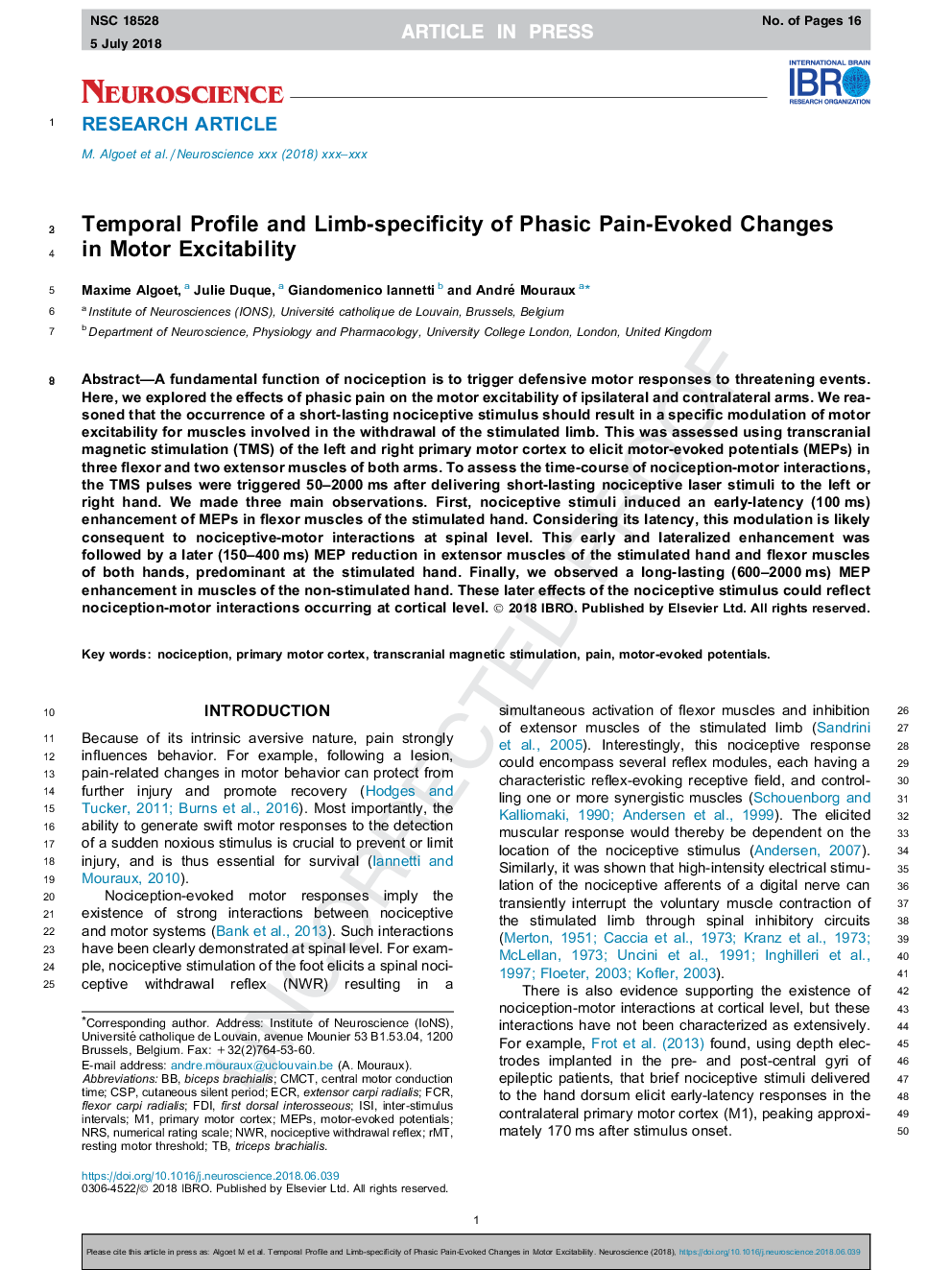| Article ID | Journal | Published Year | Pages | File Type |
|---|---|---|---|---|
| 8840609 | Neuroscience | 2018 | 16 Pages |
Abstract
A fundamental function of nociception is to trigger defensive motor responses to threatening events. Here, we explored the effects of phasic pain on the motor excitability of ipsilateral and contralateral arms. We reasoned that the occurrence of a short-lasting nociceptive stimulus should result in a specific modulation of motor excitability for muscles involved in the withdrawal of the stimulated limb. This was assessed using transcranial magnetic stimulation (TMS) of the left and right primary motor cortex to elicit motor-evoked potentials (MEPs) in three flexor and two extensor muscles of both arms. To assess the time-course of nociception-motor interactions, TMS pulses were triggered 50-2000â¯ms after delivering short-lasting nociceptive laser stimuli to the left or right hand. We made three main observations. First, nociceptive stimuli induced an early-latency (100â¯ms) enhancement of MEPs in flexor muscles of the stimulated hand. Considering its latency, this modulation is likely consequent to nociceptive-motor interactions at spinal level. This early and lateralized enhancement was followed by a later (150-400â¯ms) MEP reduction in extensor muscles of the stimulated hand and flexor muscles of both hands, predominant at the stimulated hand. Finally, we observed a long-lasting (600-2000â¯ms) MEP enhancement in muscles of the non-stimulated hand. These later effects of the nociceptive stimulus could reflect nociception-motor interactions occurring at cortical level.
Keywords
CSPFCRCMCTNRSNWRECRRMTISIFirst Dorsal Interosseousresting motor thresholdTranscranial magnetic stimulationPainCutaneous silent periodflexor carpi radialisextensor carpi radialisnociceptive withdrawal reflexCentral motor conduction timeFDInociceptioninter-stimulus intervalprimary motor cortexnumerical rating scaleMEPsmotor-evoked potentials
Related Topics
Life Sciences
Neuroscience
Neuroscience (General)
Authors
M. Algoet, J. Duque, G.D. Iannetti, A. Mouraux,
